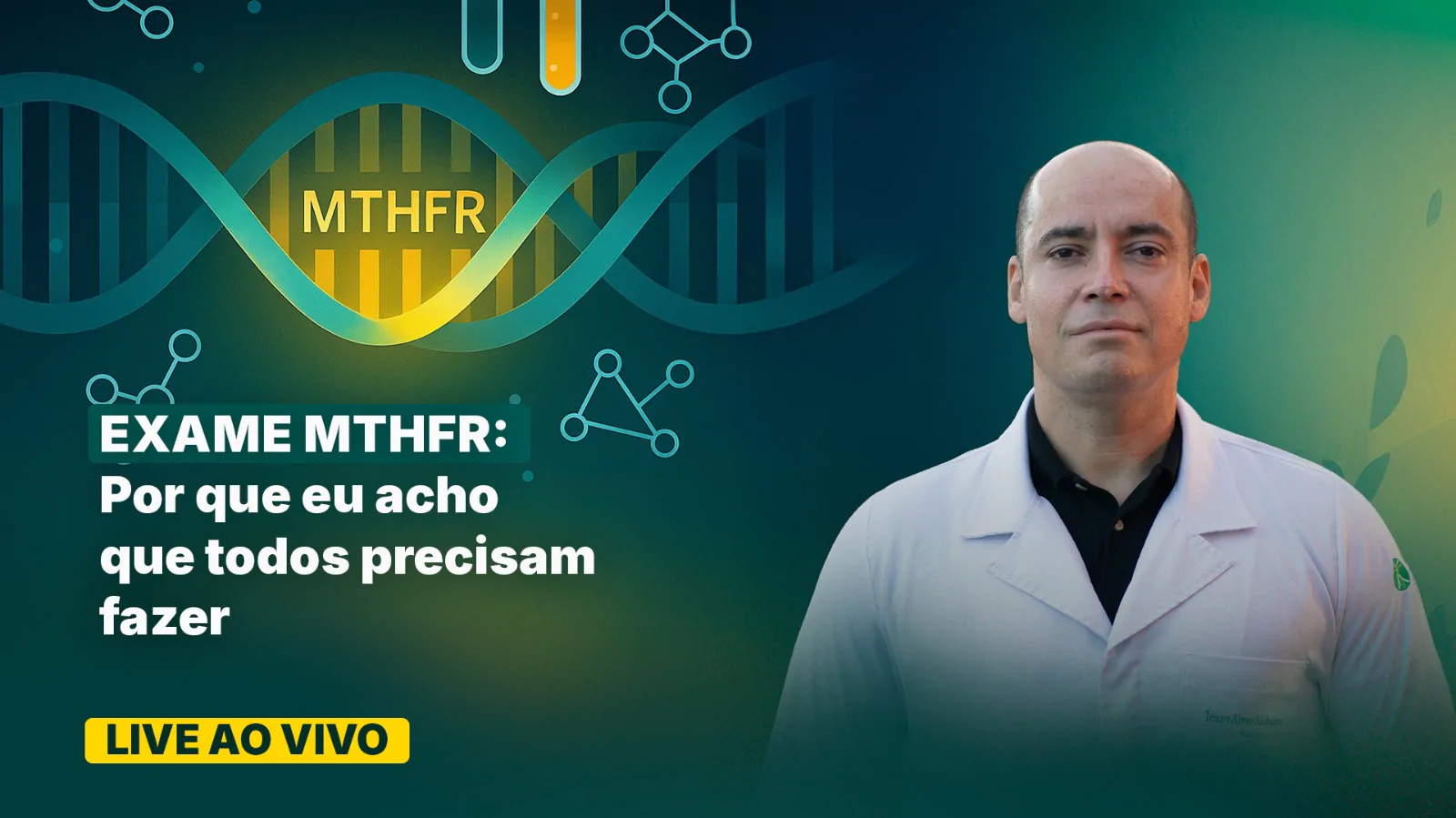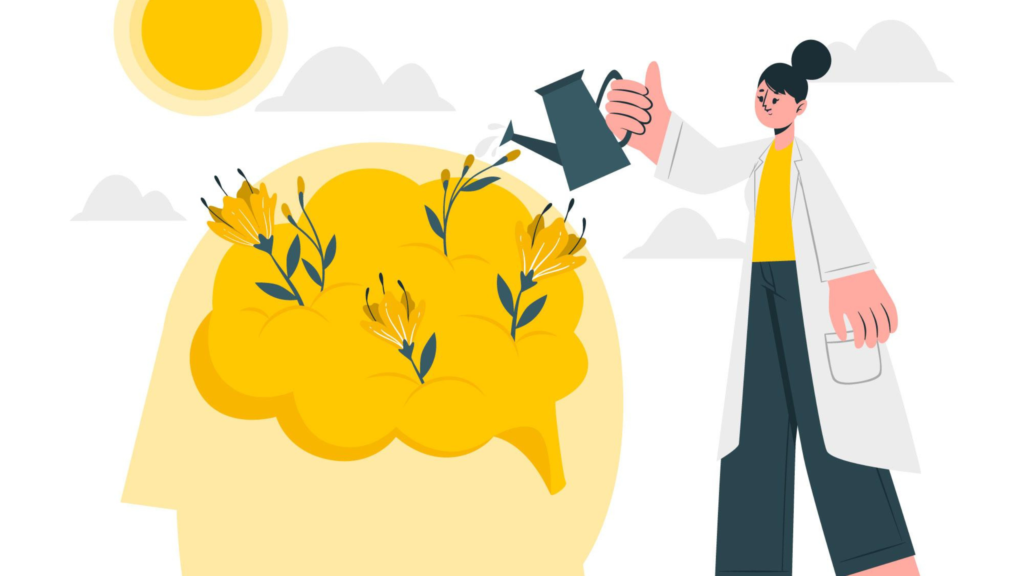Three fundamental points for reflection:
1️⃣ Do you think your life is good and balanced?
2️⃣ Is she really?
3️⃣ Have you ever heard of the Wheel of Life?
The quality of our life is influenced by multiple aspects, such as health, spirituality, family relationships, friendships, love life, work, leisure, emotions and education, among others. Fullness and balance in each of these areas are crucial to our overall well-being; the more harmonious and prosperous these dimensions are, the more enriching our life experience will be. This implies dedicating time and energy in a balanced and conscious way to each of them, aiming for continuous and integrated development: ALL of them are important and when merely ONE “goes wrong”, all the others gradually suffer, which tends to compromise life and how we see it as a whole.
BUT WHAT IS IT AND HOW DOES THE WHEEL OF LIFE FIT INTO IT?
The Wheel of Life is a powerful self-assessment and planning tool that helps people gain a clear and balanced view of their lives. It is essential for those seeking personal growth and the development of strategies to achieve goals and objectives in the most diverse areas of life.
Imagine your life as a wheel divided into several key areas, such as career, relationships, health, finances, leisure, personal development, among others; each of these areas represents a segment of the wheel, and the idea is to assess how well you are doing in each of them.
Using the Wheel of Life, you assign a score to each area, usually from 0 to 10, indicating both the level of satisfaction or fulfillment you feel in each and your current degree of commitment to each. After scoring all the areas, you connect the dots, creating a figure that looks like a wheel. This figure visually reveals the balance or imbalance in your life through how much you “invest”, harmoniously and sufficiently (or not) in the set of areas necessary for life.
Consider this analogy: a car or bicycle wheel with uneven spokes/rims struggles to roll smoothly and “breaks” more easily. In the same way, an unbalanced life, with neglected areas, can lead to more challenges, disabilities, difficulties and problems.
If your “wheel” is out of balance, this indicates that some areas are receiving more attention and energy to the detriment of others. For example, if your career is thriving but your relationships are suffering, this is an imbalance reflected in the wheel.
Once you have identified the imbalances that cause problems, the next step is to create an action plan to improve the areas that need more attention. This may involve setting specific goals, identifying the knowledge and resources needed and implementing measures to achieve the necessary balance: a good life necessarily needs a minimum of balance and the more the better.
In short, the Wheel of Life is a valuable tool for assessing and improving all the important areas of your life. It helps to create awareness about where you are and where you want/need to go, thus helping to promote greater balance and well-being in all areas of your existence. It is therefore a useful practice for anyone seeking a more effective and useful, satisfying and productive, full and fulfilled life.

BUT WHAT DOES EACH AREA MEAN?
🟢 FAMILY: In the area of family, the importance of family relationships and mutual support is highlighted. Family is one of the most essential things in life, and the success and happiness of individuals is often related to well-constituted, structured and valued families. The concept of family goes beyond blood ties and includes love, togetherness, empathy, care, happiness with each other's success and mutual support. Being part of a family means not only sharing a name, but also respecting and caring about the members, seeking the best possible relationship with everyone. Valuing moments with the family is fundamental. When analyzing this area, reflect on how you are connecting with your family, whether you are supporting and receiving support, and how you can improve this part of your life.
🟢 LOVE RELATIONSHIP: In the area of love relationships, focus on your romantic relationship. Love, considered the most powerful force in the universe, is vital in our existence. Evaluate communication, intimacy and whether your emotional needs are being met as much as you are striving to value the one you love. Remember, love is not the same as pleasure, passion, pleasant company or attraction, however much it includes all of these: it is a deeper commitment to respect, intimacy and mutual care. Research confirms the health benefits of love, highlighting that the more love you have in your life, the better your results and chances of success. When reflecting on your love relationship, think about how you are experiencing this love and whether it is aligned with these principles of respect, communication and attention to the emotional needs of both you and your partner.
🟢 SOCIAL RELATIONS: In the area of social relationships, it is essential to analyze how your interactions and friendships impact your well-being. The saying “No one is an island” highlights our social nature and how the health of relationships affects our overall health. The experience of social isolation during the pandemic has underlined the importance of face-to-face contact, physical contact and the exchange of energies for our well-being. When evaluating your social relationships, consider the quality of the interactions and their impact on your life. Ask yourself: Do you feel connected and supported by your friendships? Do your social activities make you happier and more fulfilled? Seek to balance relationships with people who bring you learning, joy and support, avoiding those who drain your energy. Reflect on the authenticity of your connections and the value they add to your life. Remember that a good social relationship is a healthy exchange of support, knowledge and emotions. This balance is essential for maintaining a rich and satisfying social life, contributing significantly to your overall health and happiness.
🟢 SPIRITUALITY: In spirituality, we reflect on the search for meaning and spiritual connection. This search is vital, regardless of religious beliefs, and involves maintaining regular contact with GOD or, for those who “don't believe”, with the “divine” or with the creative principle that sustains us. A healthy spirituality is marked by practices such as praying, doing good and helping others, which contribute to inner peace and can even help treat symptoms and illnesses. Thinking and acting positively, the natural result of healthy and regular exercise of good spirituality, attracts beneficial influences and drives away negative ones. Having negative thoughts or making mistakes is human, but the effort to overcome them with God's support is what essentially defines a healthy spiritual practice. When evaluating your spirituality, ask yourself if your daily practices promote a positive connection with God and if they are in line with your spiritual values of Good.
🟢 LEISURE: In the area of leisure, it is essential to devote time to your personal interests and to activities that bring you joy and relaxation. Leisure is not just a break from obligations, but an essential part of life that contributes to your overall well-being. Setting aside time for your favorite hobbies and pastimes is a way of recharging your energy. These activities offer an invigorating break from the daily grind and allow you to connect with the more pleasurable aspects of life, which are good for your brain and mind. When reflecting on the area of leisure in your wheel of life, consider how much you are investing in your personal interests that are not related to obligations and survival activities. Ask yourself if you are setting aside enough time for activities that relax you and bring you joy. Remember that leisure is not a luxury, but a necessity for maintaining a healthy balance between life's demands and your emotional well-being. Modern life often keeps us busy with endless responsibilities and tasks. However, it's important to remember that leisure is not a selfish indulgence, but rather a fundamental part of the pursuit of happiness and satisfaction. When we devote ourselves to our hobbies and leisure activities, we find moments of relaxation and relaxation that allow us to recharge our energies and face the challenges of everyday life with a more positive outlook.
🟢 HAPPINESS: In the area of happiness, it is essential to assess your general level of satisfaction in life and reflect on whether your choices are in line with your values. Happiness is the main goal for all of us, and everything else is a tool to achieve, maintain and improve it. It is important to understand that happiness is not just about moments of pleasure, love, passion, attraction or joy, although these are all ways of experiencing it, even if only momentarily. True happiness is intrinsically linked to well-being, encompassing body, mind, spirit and social relationships. Being healthy, both physically and mentally, is a fundamental component of happiness. This doesn't mean being perfect, but rather feeling good about what you have in your life, even while seeking improvements. Seeking true happiness involves incorporating thoughts, things, people and situations into your life that promote happiness, as long as they are aligned with the principle of doing good and not harming others. Helping others is a powerful way to find happiness, as is practicing gratitude for what you already have. It's important to remember that no one experiences happiness all the time; life includes ups and downs. However, the key to happiness lies in looking at your life and seeing that there are more happy moments than sad ones, making the necessary changes and adjusting your perspective. Finally, realize that seeking only your own happiness will never result in a fulfilling life: true fulfillment lies in finding a balance between your personal happiness and the positive impact you can have on the lives of others.
🟢 SOCIAL CONTRIBUTION: In the area of social contribution, reflect on how you are impacting society and causes that matter to you. “Apart from charity there is no salvation” emphasizes the importance of helping others, and this is especially true for every Christian. This involves more than doing for others; it's about supporting and teaching, promoting others“ autonomy. Feeling good about helping and celebrating the success of others, without expecting a reward, brings benefits to health and well-being. Understand that helping includes taking care of yourself, according to the maxim ”if your charity does not include yourself, then it is incomplete". Keeping yourself well is essential to effectively helping others. Those who are unwell can end up harming themselves in the process of helping, so taking care of yourself is not selfish, but a necessity in order to maintain the ability to make a positive contribution. With this in mind, evaluate your contributions to society and to the causes you value. Look for ways to make a difference in the lives of others, maintaining a healthy balance between helping others and yourself, while ensuring the necessary respect for your own well-being and limits.
🟢 FINANCE: In the wheel of life, finances are essential for overall well-being. It is essential to analyze your current financial situation, including income, expenses, debts and savings, in order to make better decisions. Evaluate whether you are managing your money effectively, creating a balanced budget and saving for long-term goals, such as future projects and retirement. Do you set clear and practical financial goals, such as eliminating debt and building an emergency fund? Do you live within your means, avoiding excessive debt and impulsive consumption? Financial security is not just about accumulating wealth, but also the ability to cope with unforeseen events and maintain a satisfactory quality of life, including a financial safety net with adequate savings and insurance. In short, manage your finances effectively by aligning your financial decisions with your life goals, thus building a solid foundation for the future.
🟢 FULFILLMENT AND PURPOSE: In the area of fulfillment and purpose, it is essential to reflect on your life goals and values. Purposes are like guides that direct your decisions and focus your energy and resources in the right directions. Imagine the story of Alice in Wonderland, where Alice asks the cat which way to go. The cat replies that it depends on where she wants to go. And when she replies that she doesn't know her destination, he replies that any path will do... If you don't have clear purposes, it's like not having a destination in mind. You can spend time and energy, but without direction, you can end up nowhere. Your purposes should be your main focus, where you direct your energy and resources as a matter of priority. They also act as beacons, lighting your way, especially in difficult times. Successful people have well-defined goals, planning, practical action and discipline. It's important to establish larger purposes in life and smaller ones in each area, which together will lead you to the main ones. Many people live their lives without clear goals, “putting out fires” on a daily basis. This can lead to frustration and the feeling that it is difficult to find fulfillment. However, every step towards achieving your goals brings happiness and a sense of fulfillment. Also, when it comes to work, value it as an essential part of life. Resting when necessary, but never giving up, is a valuable approach. Do what needs to be done right from the start to avoid rework. Keeping up challenging occupations, even after retirement, is crucial for physical and mental health. Be sure to maintain regular activities that stimulate your mind and body. In analyzing this area, reflect on your purpose in life, assess whether your actions are in line with your goals and values, and try to direct your energy and efforts in the right direction, maintaining a healthy balance between work and personal sphere but knowing that both go hand in hand for total fulfillment.
🟢 BODY HEALTH: In the area of body health, the focus is on taking care of both physical health and general well-being, following the principle of “Take care of your body as the temple of the spirit”. This principle highlights the importance of taking care of our most precious asset, the body that was given to us to fulfill our purposes. It is an asset that deserves constant attention. Unfortunately, many people neglect prevention and a healthy lifestyle, seeking help only when symptoms or illnesses have already manifested themselves. This approach makes the problem harder to treat and harms long-term health. It is crucial to understand that taking care of the body should not be limited to aesthetic goals, but should ensure that it functions properly on a daily basis. This has a direct impact on productivity and quality of life, not least because the brain, which is the body's command center and where the mind operates, is a physical organ of the body. Therefore, in the area of the health of the body, it is essential to assess how you are looking after this “temple of the spirit”. Maintaining a healthy lifestyle that promotes energy and well-being is essential for a full and healthy life. Remember that healthy lifestyle habits play a fundamental role in maintaining the health of the body and in the pursuit of happiness and fulfillment.
🟢 MENTAL HEALTH: In the mental health area of the wheel of life, it's crucial to analyze how you deal with your emotions and stress. Currently, there is a growing fragility in mental health, with estimates indicating that many people face anxiety, depression or other psycho-emotional disorders. Emotionally debilitated adults can negatively affect the mental health of the children, adolescents and elderly people in their care. Many people could benefit from psychological counseling, even though there is a stigma surrounding this practice. The pandemic has exacerbated mental health problems, bringing fear, panic, insecurity and social isolation. In addition, excessive use of screens and exposure to low-quality or negative content are factors that contribute to mental illness. It's important to remember that mental health is interconnected with bodily, spiritual and social health. Taking care of each of these aspects is fundamental for a healthy and resilient emotional balance. Mind and brain, although different, are closely connected and interdependent. It is therefore essential to look for ways to improve mental health, whether through therapy, mindfulness practices, physical exercise or other strategies that promote emotional and psychological well-being.
🟢 INTELLECTUAL DEVELOPMENT: In intellectual development, the Talmud teaches us: “Pay attention to your thoughts, for they will become words. Pay attention to your words, for they will become actions. Pay attention to your actions, for they will become habits. Pay attention to your habits, for they will become your character. Pay attention to your character, for it will determine your destiny”. This highlights the importance of thoughts in our lives, but it is knowledge that underpins and shapes these thoughts. Good knowledge is the foundation. It comes from useful, true and well-understood information about what we want to know. Decisions based on insufficient or wrong knowledge lead to poor results and the illusion of knowledge is even worse than recognizing the lack of it. Knowledge is constantly evolving: today, it doubles every 12 months. Being wise and successful involves constantly seeking new knowledge and optimizing what we already know. Analyze how you are investing in your intellectual growth. Seek out useful, true information and understand it deeply. Be aware that knowledge is the basis of your actions and destiny. Always remember that good knowledge, well applied, tends to lead to good results.
BUT HOW SHOULD I FILL IN THE WHEEL OF LIFE? WHERE CAN I FIND IT?
The Wheel of Life can be found on various websites, in PDF format, to be filled in using a program like Excel, or online, like the one we have available here on the site, which you can access by clicking on the link below:

Our Wheel of Life has a unique feature compared to the versions available on the internet. It includes “branches” in each area, allowing for a more detailed analysis of each aspect. These subdivisions are designed to offer a more in-depth examination, providing a more complete and accurate understanding of each segment.
To fill it out effectively, follow these detailed steps:
✅ Choose a quiet moment: Set aside a time in your day when you can concentrate without distractions. It can be at any time of the day, but the important thing is to be in the most peaceful environment and at the most peaceful time possible.
✅ Look at the Wheel Areas: The Wheel of Life is divided into several areas: health, relationships, leisure, among others. Each represents an important aspect of your life.
✅ Honest self-assessment: In each segment of the Wheel of Life, conduct a sincere self-assessment. Ask yourself about your current reality and feelings in relation to each area. For example, in the family dimension, ask yourself how satisfied you are with the time you devote to your family. Evaluate whether this dedication is in harmony with your personal goals. This process of introspection aims to promote a deep and honest understanding of where you are in each aspect of your life, even if it often doesn't seem very pleasant to see and detail.
✅ Assign a score: Use the scale from 0 to 10 to assign a score to each area. Remember that 0 means the area is very unbalanced and needs immediate attention, while 10 indicates that it is perfectly balanced.
✅ Connect the Areas: As you fill in the Wheel, notice how the areas are interconnected. For example, if you gave yourself a low score in the area of health, this could affect other areas, such as relationships and emotional well-being. Comparing inequalities between areas is what will most suggest “where to take” resources from “where to put” them.
✅ Set goals: After filling in the Wheel, you will have a clearer picture of the areas that need attention. Set specific goals to improve these areas and create a realistic action plan.
Having completed the valuable analysis provided by the Wheel of Life, an important question arises: “What now? How can I use these findings to improve my life?” The Wheel of Life is an essential diagnostic and self-knowledge tool, ideal for providing a clear view of the current state of the various areas of your life. This process of in-depth reflection is crucial, as it lays the foundations for any significant progress in your personal development journey.
At this point of transition, it is crucial to recognize that the journey ahead is deeply personal and unique. The Wheel of Life offers a detailed map for self-knowledge, but the paths to be followed, based on this knowledge, are specific to each individual.
From then on, the process of transformation and growth becomes an intensely personal experience. Each person has their own individual challenges and dreams. Therefore, the application of the insights gained through the Wheel of Life is as individual as each person's life experiences.
With this understanding, I'll give you some suggestions for goals and actions to follow, but I emphasize that these are initial guidelines - adaptable starting points, shaped according to each person's reality. They are invitations to growth, waiting to be personalized and rooted in the fertile ground of self-knowledge. The real effectiveness of these actions depends entirely on each person's ability to personalize them, making them meaningful and effective strategies for their own life path.
WHICH GOALS TO SET FOR EACH AREA?
Once you've analyzed the areas of your life on the Wheel of Life, it's time to create goals to promote improvements in each of them. Remember that the goals you set should be personal and based on the results of your assessment. Below are some suggested goals for each area, but I encourage you to adapt them and create your own goals according to your specific needs and objectives.
FAMILY:
- Spend at least one evening a week with the family, without distractions.
- Schedule regular meetings with family members to strengthen ties.
- Resolve conflicts constructively, listening carefully to family members.
LOVE RELATIONSHIP:
- Have a weekly “date night” with your partner.
- Communicate openly about wants and needs in the relationship.
- Express love and appreciation every day through words and actions.
SOCIAL LIFE:
- Make appointments with friends at least once a month.
- Participate in social events or interest groups that you value.
- Balance time dedicated to social life with time for self-care.
SPIRITUALITY:
- Set aside 10-15 minutes a day for meditation or spiritual reflection.
- Read a spiritual or philosophical book every month.
- Participate in discussion groups and read the Bible weekly
HOBBIES AND FUN:
- Choose a new hobby to explore each quarter.
- Schedule time each week for leisure activities that you love.
- Keep a list of fun things to do and cross them off as you go.
HAPPINESS:
- Define short- and long-term goals in line with your values.
- Practice gratitude daily, writing in a journal what you are grateful for and why (thus identifying and valuing what you already have in your life).
- Exercise feeling happy every day with what you already have, before “looking for more”.
SOCIAL CONTRIBUTION:
- Identify a cause or organization to support and set volunteering goals.
- Donate a percentage of your time or resources to causes you value.
- Organize or participate in charity events in your community.
FINANCIAL HEALTH:
- Create a monthly budget and monitor your spending regularly.
- Set savings and investment targets for the future.
- Seek professional financial advice if necessary.
FULFILLMENT AND PURPOSE:
- Identify meaningful life goals and create a plan to achieve them.
- Regularly review your objectives and adjust them as necessary.
- Explore ways to contribute to your community or society according to your values.
HEALTH AND DISPOSITION:
- Prioritize healthy lifestyle habits.
- Learn more about prevention and early detection of disorders.
- Have medical check-ups to monitor your health.
EMOTIONAL BALANCE:
- Practice stress management techniques such as meditation or yoga.
- Seek psychological or therapeutic support when necessary.
- Develop communication and conflict resolution skills.
INTELLECTUAL DEVELOPMENT:
- Set reading goals and define a number of books to be read per year.
- Sign up for courses, workshops or seminars to learn new skills.
- Participate in discussion groups or book clubs to promote learning and reflection.
The Wheel of Life is an effective self-assessment and planning tool that provides a comprehensive view of various areas of life. After this analysis and self-knowledge, it is vital to take action to improve these areas by adopting healthy habits, eating a balanced diet, exercising and much more. In my 9th book, “Master Your Health”, available at dominesuasaude.com.br, you'll find valuable information and practical tips. With around 160 pages, the book is easy to understand and apply in everyday life, covering essential points for a healthy lifestyle. It teaches you, in a simple and effective way, how to implement more natural and beneficial habits, which can help you with each segment of the Wheel of Life.





















